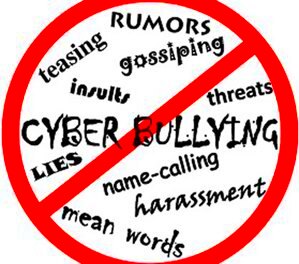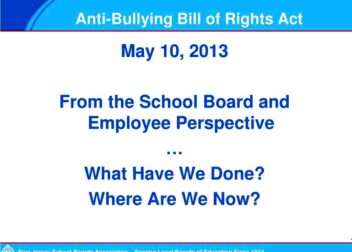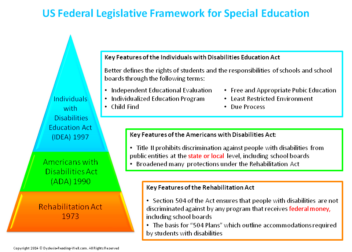Enforcement of Cyberbullying Prevention Laws in Pennsylvania Schools
Cyberbullying is a growing concern in today’s digital age, especially among students. In Pennsylvania, laws have been put in place to address this serious issue. These laws aim to protect students and create a safe environment for learning. By understanding these laws, we can better support schools and communities in their efforts to combat cyberbullying.
Overview of Cyberbullying and Its Impact on Students

Cyberbullying involves using digital platforms to harass, threaten, or humiliate someone. This form of bullying can occur through social media, texting, or online gaming. Its impact on students can be severe and long-lasting. Here are some key points about cyberbullying:
- Emotional Distress: Victims often experience anxiety, depression, and low self-esteem.
- Academic Issues: Students who are bullied may struggle to concentrate in class, leading to poor academic performance.
- Social Isolation: Victims may withdraw from friends and activities, feeling alone and unsupported.
- Long-Term Effects: The effects of cyberbullying can extend into adulthood, impacting relationships and job performance.
Understanding these impacts is essential for schools, parents, and communities to take proactive steps in prevention and support.
Key Provisions of Pennsylvania Cyberbullying Laws
Pennsylvania’s cyberbullying laws are designed to provide a framework for addressing and preventing cyberbullying in schools. Here are some key provisions:
- Definition of Cyberbullying: The law defines cyberbullying as harassment through electronic means, including text messages, emails, and social media.
- School Responsibilities: Schools are required to establish policies that specifically address cyberbullying and outline procedures for reporting and investigating incidents.
- Training and Education: School districts must provide training for staff and educational programs for students about the dangers and consequences of cyberbullying.
- Reporting Mechanisms: Students and parents must have access to clear reporting mechanisms for incidents of cyberbullying.
- Consequences for Offenders: The law stipulates appropriate disciplinary measures for students found guilty of cyberbullying.
These provisions aim to create a supportive environment for students while ensuring that cyberbullying is taken seriously within Pennsylvania schools.
Role of Schools in Enforcing Cyberbullying Laws
Schools play a crucial role in enforcing cyberbullying laws. Their involvement goes beyond merely following the law; they are responsible for fostering a safe and respectful environment for all students. Here’s how schools can actively participate in enforcing these laws:
- Developing Clear Policies: Schools must create comprehensive anti-cyberbullying policies that outline what constitutes cyberbullying and the consequences for those who engage in it.
- Implementing Training Programs: Regular training sessions for teachers, staff, and students help everyone understand the seriousness of cyberbullying and the importance of prevention.
- Encouraging Open Communication: Schools should foster an environment where students feel safe discussing their experiences and reporting incidents without fear of retaliation.
- Conducting Awareness Campaigns: Awareness campaigns can inform students about the effects of cyberbullying and encourage them to be allies against bullying.
- Monitoring Online Activity: Schools can monitor school-issued devices and online platforms for signs of cyberbullying to take action swiftly when necessary.
By taking these steps, schools not only comply with the law but also promote a culture of respect and kindness among students.
Reporting Procedures for Cyberbullying Incidents
Establishing clear reporting procedures is essential for effectively addressing cyberbullying incidents. When students know how to report bullying, they are more likely to speak up. Here are some key elements of effective reporting procedures:
- Accessible Reporting Channels: Schools should provide multiple avenues for reporting, such as online forms, hotlines, and in-person meetings with trusted staff.
- Anonymity Options: Allowing anonymous reporting can encourage students to come forward without fear of being identified.
- Clear Guidelines: Schools need to provide clear instructions on how to report incidents, including what information is needed and who to contact.
- Immediate Response: Once a report is made, schools should have procedures in place for a timely response, ensuring that students feel heard and supported.
- Follow-Up: After a report is investigated, schools should follow up with the victim to ensure their safety and well-being.
These procedures help create a supportive environment where students feel empowered to speak out against cyberbullying.
Consequences for Violating Cyberbullying Laws
To effectively deter cyberbullying, it’s crucial to have clear consequences for those who violate cyberbullying laws. Understanding these consequences helps reinforce the seriousness of the issue. Here are some common repercussions:
- Disciplinary Actions: Schools may impose disciplinary actions such as suspension, expulsion, or other consequences depending on the severity of the offense.
- Restorative Justice Programs: Some schools might implement restorative practices that encourage offenders to understand the impact of their actions and make amends.
- Legal Consequences: In severe cases, violating cyberbullying laws may lead to legal actions, including fines or even criminal charges.
- Parental Involvement: Schools often involve parents in the process, ensuring they are aware of their child’s behavior and the consequences.
- Required Counseling: Offenders may be required to attend counseling or educational programs focused on empathy and appropriate online behavior.
By enforcing these consequences, schools send a strong message that cyberbullying will not be tolerated, helping to protect students and foster a positive school culture.
Strategies for Educating Students About Cyberbullying
Educating students about cyberbullying is essential for prevention. When students understand what cyberbullying is and how it affects others, they are more likely to act responsibly online. Here are some effective strategies for educating students:
- Interactive Workshops: Organize workshops that encourage students to participate in discussions and activities related to cyberbullying. Role-playing scenarios can help them understand different perspectives.
- Utilizing Technology: Incorporate technology into lessons, using online platforms and apps that promote awareness and discussion around cyberbullying issues.
- Peer Mentoring Programs: Establish peer mentoring where older students guide younger ones on the importance of respectful online behavior, fostering a sense of responsibility.
- Incorporating Real-Life Examples: Share stories or case studies that highlight the impact of cyberbullying on individuals, which can resonate deeply with students.
- Creating Awareness Campaigns: Encourage students to participate in campaigns that promote anti-cyberbullying messages, using posters, videos, or social media to spread the word.
By using these strategies, schools can empower students to be proactive in preventing cyberbullying and create a safer online community.
FAQ about Cyberbullying Prevention Laws
Understanding cyberbullying prevention laws can raise awareness and help students, parents, and educators navigate this critical issue. Here are some frequently asked questions:
- What is considered cyberbullying? Cyberbullying includes any form of harassment or bullying that occurs through digital means, such as social media, texts, or emails.
- Are schools required to have anti-cyberbullying policies? Yes, Pennsylvania law requires schools to establish and enforce policies addressing cyberbullying.
- What should I do if I witness cyberbullying? Report the incident to a trusted adult or school official. It’s important to document the evidence, such as screenshots or messages.
- What are the consequences of cyberbullying? Consequences can range from school disciplinary actions to legal ramifications, depending on the severity of the bullying.
- How can parents help prevent cyberbullying? Parents can educate their children about responsible online behavior, encourage open communication, and monitor their child’s online activities.
These FAQs help clarify the laws surrounding cyberbullying and promote awareness among students and parents.
Conclusion on the Importance of Cyberbullying Prevention
In conclusion, preventing cyberbullying is vital for fostering a safe and supportive environment in schools. The impact of cyberbullying can be devastating, affecting students’ mental health, academic performance, and overall well-being. By understanding cyberbullying laws, implementing effective educational strategies, and encouraging open communication, schools can play a pivotal role in combating this issue.
Here are a few key takeaways:
- Awareness is Key: Educating students, parents, and staff about cyberbullying is crucial for prevention.
- Active Participation: Schools must actively participate in enforcing laws and creating a supportive culture.
- Community Involvement: Collaboration between schools, parents, and the community can strengthen efforts to combat cyberbullying.
Ultimately, prioritizing cyberbullying prevention not only protects students but also promotes a healthier and more respectful learning environment.


